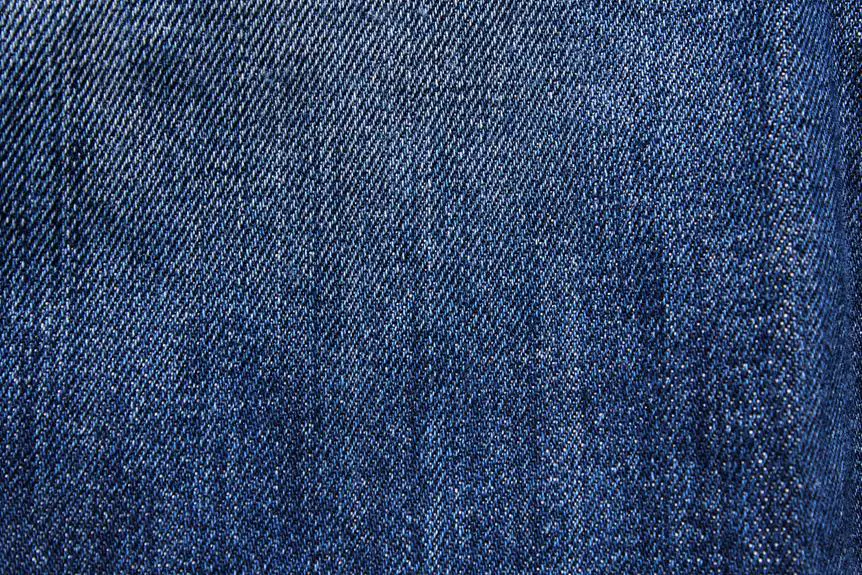If you're a dedicated seamstress, you know that the fabric you choose for your threading can significantly impact the outcome of your project.
Did you know that the average sewing needle contains an eye that is approximately 40% of the needle's diameter?
When selecting the best fabric for threading, consider the top 5 options: cotton, linen, silk, wool, and polyester.
Each fabric offers unique qualities that can enhance your sewing experience and the final product.
Understanding the characteristics of each fabric will empower you to make informed decisions and achieve mastery in your sewing projects.
Key Takeaways
- Cotton and linen are suitable options for fabrics that will be worn due to their versatility, durability, and breathability.
- Silk adds elegance to sewing projects and offers a wide range of colors, making it a desirable choice for threading.
- Wool is a warm and rustic fabric that provides exceptional warmth and durability, making it a versatile option for various sewing projects.
- Polyester is a synthetic fabric that offers versatility and durability, making it a great choice for threading synthetic or blended fabrics.
Cotton
When you're considering which fabric is best for threading, cotton is an excellent option to consider due to its versatility and durability. Cotton's durability is a result of its natural fibers, making it strong and long-lasting. When used for threading, the thread count of cotton is an important factor to consider. A higher thread count often indicates a softer and more durable fabric, making it easier to work with when threading.
In addition to its durability, cotton is known for its breathability and moisture-wicking properties. This means that when used for threading, cotton can help keep you cool and dry, making it comfortable to work with for extended periods. These properties also make cotton an excellent choice for threading fabrics that will be worn, as it can help to manage moisture and prevent discomfort.
Linen
Linen's natural fibers make it a popular choice for threading, offering a smooth and durable fabric for your sewing projects. Linen thread strength and its color options are key factors to consider for your sewing needs.
Here's why linen is an excellent choice for threading:
- Exceptional Strength: Linen thread is known for its remarkable strength, making it suitable for heavy-duty sewing projects such as upholstery, canvas, and leather. Its durability ensures that your stitches will hold up over time.
- Natural Color Variations: Linen thread comes in a range of natural and earthy tones, perfect for achieving a rustic and organic look in your sewing projects. The natural color options of linen thread can complement a wide variety of fabrics and styles.
- Smooth Texture: The smooth texture of linen thread allows for easy threading through needles and smooth stitching, reducing the risk of snags and tangles during your sewing process.
- Breathable Fabric: Linen's breathable nature makes it an excellent choice for sewing projects that require fabric with good air permeability, such as clothing and household linens.
Silk
Silk threads offer a luxurious and versatile option for threading, providing a smooth and lustrous finish to your sewing projects. When it comes to strength, silk threads are remarkably durable despite their delicate appearance. The natural properties of silk, including its smooth texture and tensile strength, make it a reliable choice for both hand and machine sewing.
Silk threads are available in a wide range of colors, offering an extensive palette to complement any fabric or garment. Whether you need a vibrant hue or a subtle shade, silk threads provide an array of options to elevate your stitching. Additionally, the lustrous sheen of silk adds a touch of elegance to your creations, enhancing the overall visual appeal of your sewing projects.
When selecting silk threads, consider the weight and thickness that best suits your specific sewing needs. With its strength and diverse color options, silk thread proves to be an excellent choice for achieving exquisite and durable results in your needlework.
Wool
Wool threads provide a warm and rustic option for threading, offering a cozy and textured finish to your sewing projects. When considering wool for threading, it's essential to understand its unique characteristics and potential benefits. Here are some key points to consider:
- Warmth and Durability: Wool is well-known for its exceptional warmth, making it an excellent choice for cold-weather garments and accessories. Additionally, wool threads are highly durable, ensuring that your sewing projects maintain their quality over time.
- Different Dyeability Options: Wool offers versatile dyeing options, allowing you to achieve a wide range of vibrant and rich colors for your sewing endeavors. Whether you prefer bold and bright hues or more subdued tones, wool can be dyed to suit your specific aesthetic preferences.
- Texture and Coziness: Wool threads add a unique texture and coziness to your sewing projects, creating a distinct tactile experience. The natural crimp of wool fibers contributes to its characteristic texture, making it an appealing choice for various crafting applications.
- Versatility in Applications: From creating warm blankets and outerwear to crafting intricate embroidery designs, wool threads offer versatility in a wide array of sewing projects, making them a valuable addition to any crafter's toolkit.
Polyester
Polyester threads offer a versatile and durable option for threading, making them a popular choice for a wide range of sewing projects. When it comes to thread durability, polyester is known for its strength and resistance to abrasion, making it suitable for both hand and machine sewing. This durability ensures that your stitches will hold up well over time, even in high-stress areas of your garment or project.
Additionally, polyester threads are often praised for their smoothness when creating stitches. The fine diameter of polyester threads allows for smooth and even stitching, contributing to a professional and polished finish. Whether you're working on apparel, accessories, or home decor items, polyester threads can provide the reliability and quality you need.
Keep in mind that polyester threads may not be the best choice for natural fibers, as they lack the same level of stretch and flexibility. However, for synthetic or blended fabrics, polyester threads are an excellent option for achieving strong, smooth, and long-lasting stitches.
Frequently Asked Questions
Can These Fabrics Be Used for Both Hand and Machine Threading?
You can use these fabrics for both hand and machine threading. Consider fabric suitability based on threading techniques and fabric properties. Look for options that offer ease of use and durability for your specific needs.
Are There Any Specific Care Instructions for Maintaining the Quality of These Fabrics During Threading?
To maintain fabric durability during threading, follow specific care instructions. Different fabrics require unique handling. Consistent gentle washing, avoiding harsh detergents, and air drying can help preserve the quality of the fabric.
Are There Any Environmental or Sustainability Considerations When Choosing These Fabrics for Threading?
When choosing fabrics for threading, consider their environmental impact and sustainable sourcing. Look for materials like organic cotton, linen, or Tencel, which are eco-friendly and responsibly produced. These choices align with your desire for sustainability and quality craftsmanship.
Are There Any Specific Tools or Equipment Recommended for Threading With These Fabrics?
When threading with different fabrics, it's essential to use recommended tools and sewing equipment to achieve the best results. Each fabric has specific requirements, and alternative threading materials can be explored based on unique fabric characteristics.
Are There Any Specific Techniques or Tips for Threading With These Fabrics to Achieve the Best Results?
To achieve the best results when threading with different fabrics, it's crucial to focus on fabric preparation and thread tensioning. These techniques ensure smooth and even stitches, regardless of the fabric's properties. Mastering these skills will elevate your sewing projects.
- How Does Ring Spun Cotton Affect Garment Fit and Shape Retention? - August 13, 2024
- What Are the Challenges in Producing Ring Spun Cotton? - August 13, 2024
- Is Ring Spun Cotton Suitable for Plus-Size Clothing? - August 13, 2024





